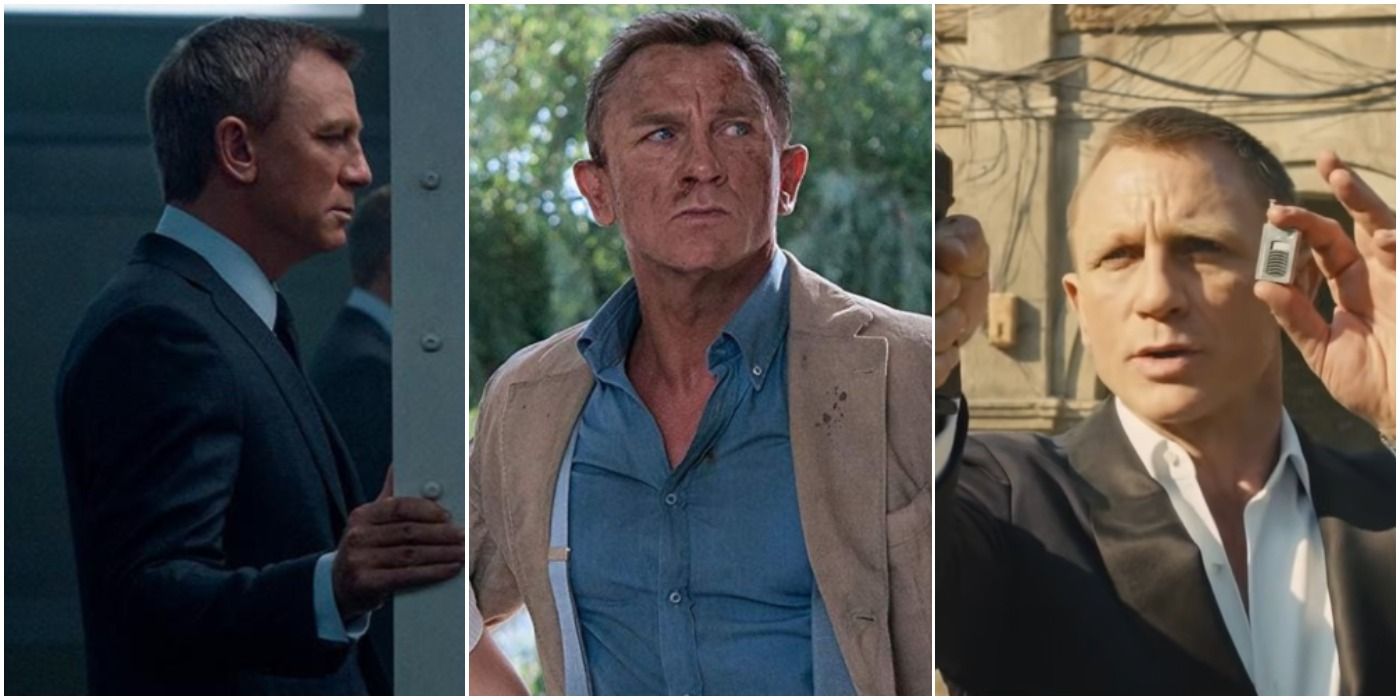
Over the course of the enduring James Bond film series, most of the incarnations of 007 have eschewed any character development. In part, this was aided by the series' loose continuity and the desire to make every film viewable as a standalone story. And while each actor's portrayal of Bond is different from the other's, the portrayals tend to remain static within their separate iterations.
This is not the case with Daniel Craig's version of the character, who is the sixth James Bond within the official line of films. His character has undergone changes between each of the five films he's appeared in, becoming the most dynamic version of the character so far.
10 Bond Becomes Much Colder About Killing
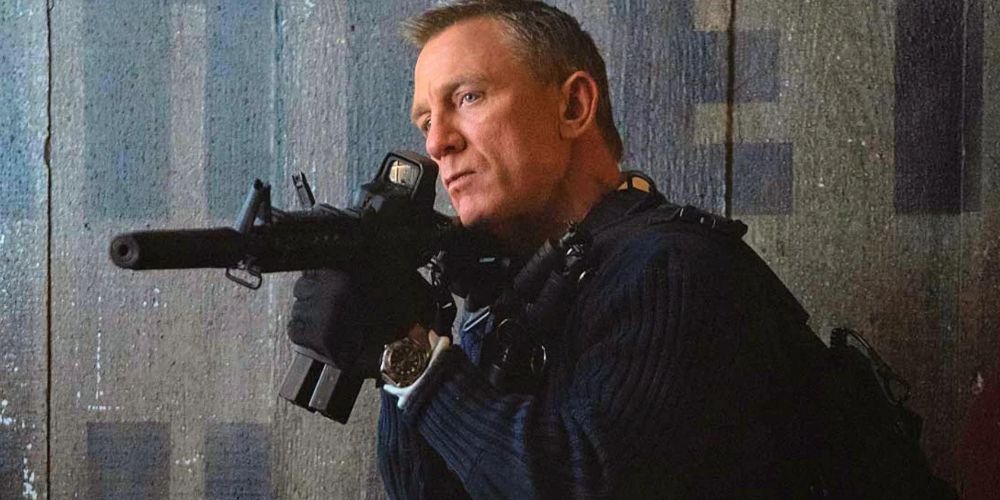
James Bond's relative ease with taking a life began in the prologue of Casino Royale, which documents him achieving the two kills needed to become a 00 Agent. In Daniel Craig's version of Bond, this was achieved by taking out a traitorous MI6 station chief and his contact. Bond is clearly shaken by his first kill after he drowns the contact in a sink, but he sarcastically finishes the chief's comment about killing becoming easier after shooting him.
Nevertheless, Bond has fewer kills in Casino Royale and lacks the same callous and uncaring view of death he develops later in the series. Bond's outlook changes so much that, by Spectre, he's primarily referred to as an assassin. In No Time To Die, he doesn't hesitate blowing up an entire facility filled with innocent staff while calmly shooting his way through most of it.
9 His Level Of Cunning Increases
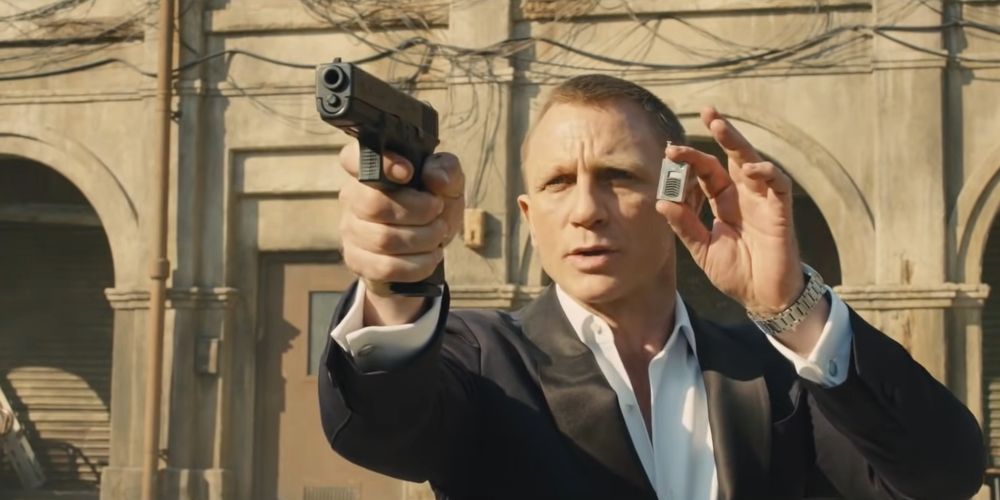
James Bond isn't a stupid man, having graduated from Cambridge university and risen through the ranks of the Navy to become a Commander. Similarly, from the very start of his career, Bond proves himself as pragmatic and cunning. For example, he removes the bullets from a man's gun before confronting him in Skyfall.
RELATED: 10 TV Spies That Are Better Than James Bond
Nevertheless, his level of cunning only increases over the course of the series, with Bond becoming more underhanded. The best example of this is when Bond's daughter's life is threatened in No Time to Die. Whilst other films have shown him easily subdued with these threats, in No Time to Die, Bond pretends to beg – using it as a cover to draw a gun and kill the guards.
8 Bond Becomes Much Warier Of Love
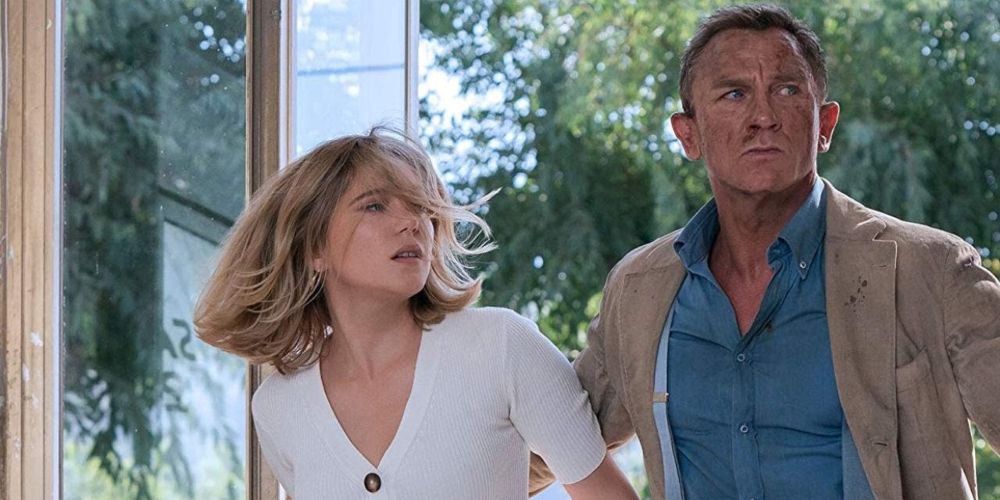
Bond isn't a man especially open to love. He's a cynic who prefers womanizing without any commitments. However, after the events of Casino Royale where Vesper betrays him and MI6, Bond truly rejects the notion of love.
In the prologue of No Time to Die, Bond is ambushed by SPECTRE and taunted by Blofeld, who claims that his lover, Madeleine Swann, set him up. Although Swann rejects the accusation, Bond puts her on a train and doesn't see her for five years, no longer trusting her.
7 He Seeks Out More Vengeance
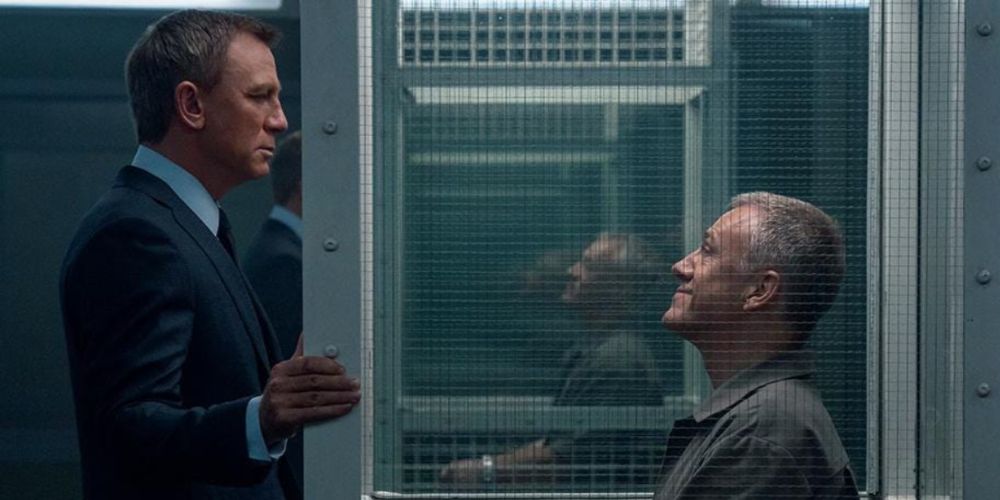
Vesper Lynd's betrayal and death changes a lot for Bond. Despite claiming not to care, he spends most of Quantum of Solace hunting down the ones who killed her to enact revenge.
Before this incident, Bond was more professional. However, after Casino Royale, he's happy to avenge Vesper despite the risk to his position at MI6. In Spectre, he briefly deviates from his revenge plot by sparing Blofeld; but after he's shown what a bad idea that was, he tries to strangle him to death in his cell in No Time to Die.
6 Bond Is Calmer About His Work

Although Bond is never terrified in the earlier films, his stress levels are obvious during higher-danger situations. He tends to remain silent in his fights in Casino Royale rather than dropping the taunts his predecessors are known for, and is notably rattled after surviving a poisoning attempt.
As Bond's experience increases, he becomes more at ease doing his job, even when he's wounded or in a difficult position. His demeanor becomes calmer and colder and he spends more time speaking to foes. During No Time to Die, he cracks a joke with Q about a kill he managed using one of his gadgets.
5 His Missions Become More Altruistic
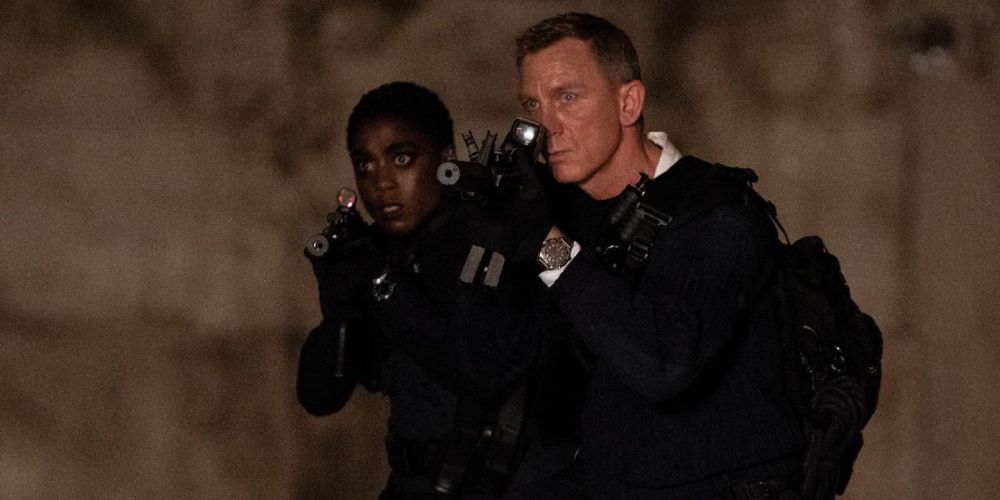
James Bond would dispute his status as a "hero." In fact, Craig's incarnation often reflects on his status as a hired killer for the British government and what kind of person that makes him. His earlier movies reflect this sentiment too, with his missions often benefitting MI6, or himself, but not the world at large.
In Spectre – and in tune with the series embracing more of the old-school Bond grandiosity – the villains' schemes start to reflect "take over the world" tropes the first movies seemed too "mature" to contemplate. After trying to force Le Chiffre to become an informant, hunting down Vesper's killers, and protecting his mother figure in M, Bond finally steps into the light for his final two movies. His aim? To stop SPECTRE controlling global intelligence and stop the earth being ravaged by targeted nanobots.
4 Bond Is Less Fearful Of Torture
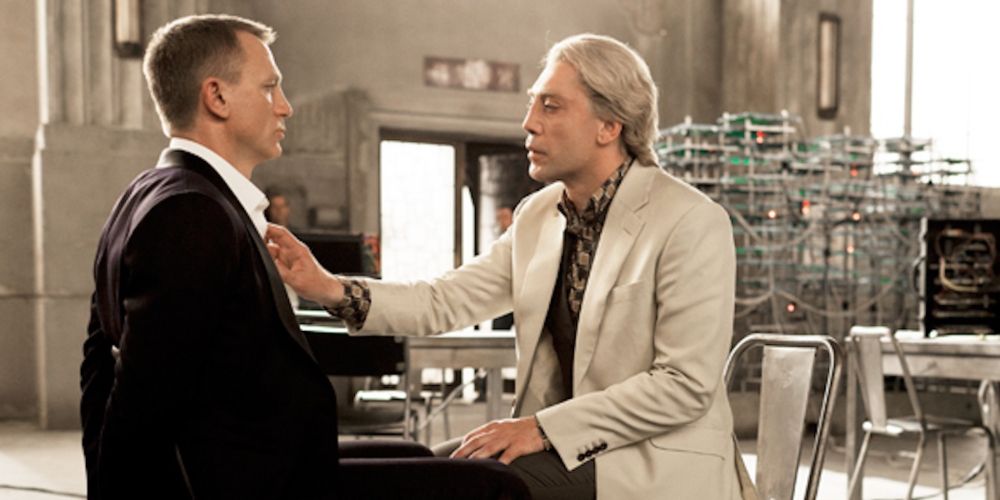
The infamous torture scene from Casino Royale is one of the most graphic in Bond's history. And in a series that's known for its hero being captured and interrogated, this is an impressive feat. While the grounded, realistic nature of the torture helps, Craig's performance sells it.
During his torture, Bond makes jokes and yells out taunts as he's brutally whipped. However, it's clear it's a coping mechanism meant to cover up his genuine fear and pain. No Time to Die doesn't offer a benchmark as Bond isn't tortured in that film; the best contrast comes in Skyfall when Bond is in an eerily similar circumstances to Casino Royale and simply trades flirtatious comments with his captor.
3 He Has More Questions For MI6
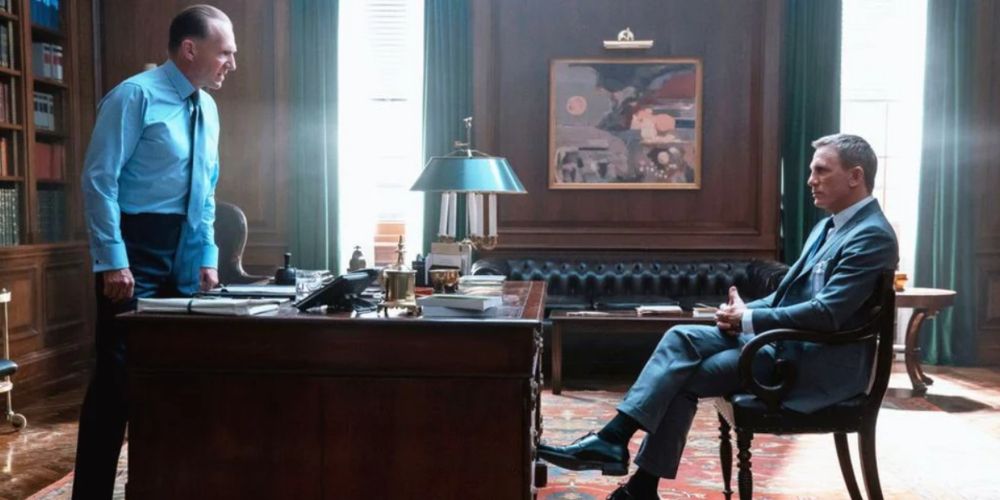
In Casino Royale, James Bond is a loyal foot soldier for MI6. Although he's highly-strung and willing to do things his own way, he's still unquestioningly loyal to the organization, even after they admit they'd give Le Chiffre refuge if the villain killed him.
However, after M gave him up to the Americans in Quantum of Solace, Bond starts to question what is really going on with his organization. In No Time to Die, he openly confronts the new M over MI6's backing of Project Herakles, and the two exchange harsh words.
2 He Finds A Purpose Beyond Killing

To further explore Bond's character, some of the films during Craig's tenure explore what Bond has in his life away from his work for MI6. Skyfall in particular shows how empty Bond's life would be without his job. In both Skyfall and No Time to Die, when Bond quits MI6, he's portrayed as a solitary figure who spends most of his time diverting boredom rather than doing anything fulfilling.
However, over the course of No Time to Die, Bond finds meaning in something other than MI6. Initially, he thinks it's his relationship with Madeleine Swann, but after he meets his young daughter, Mathilde, Bond's primary focus becomes about protecting her. Even when he faces certain death, he finds himself satisfied because Mathilde will be safe.
1 James Finds Himself Friends
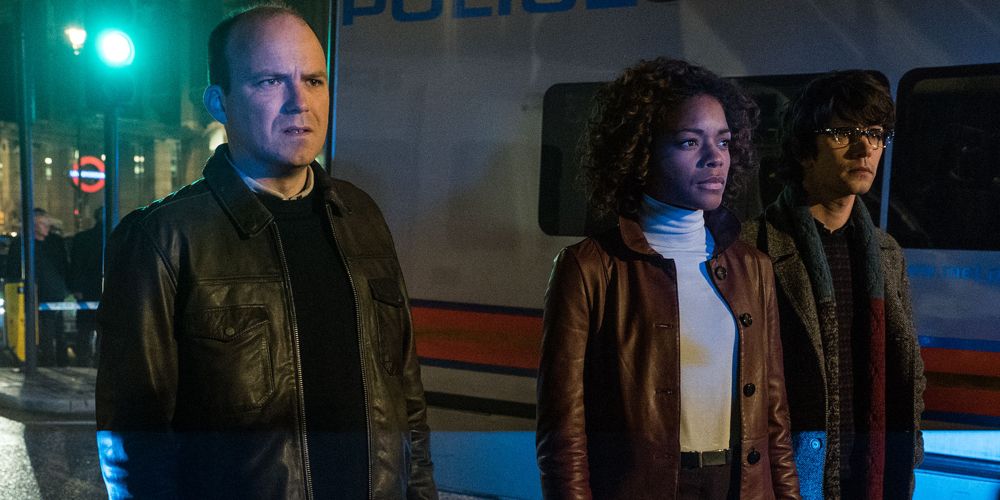
With the stripped-back cast of his first movies, Daniel Craig's James Bond seems like a solitary figure. Aside from his close tie to M, the only other well-known friendship that makes an appearance in Casino Royale is Felix Leiter, with the two being little more than acquaintances.
As more of the supporting cast is introduced, Bond's circle of friends grows. Even with Leiter's death in No Time to Die, after which Bond likens him to a brother, James's eulogy is toasted by M, Q, Bill Tanner, Moneypenny, and Nomi, who is the new 007. In Bond's first appearance, such a large group would have been unthinkable.
0 Comments